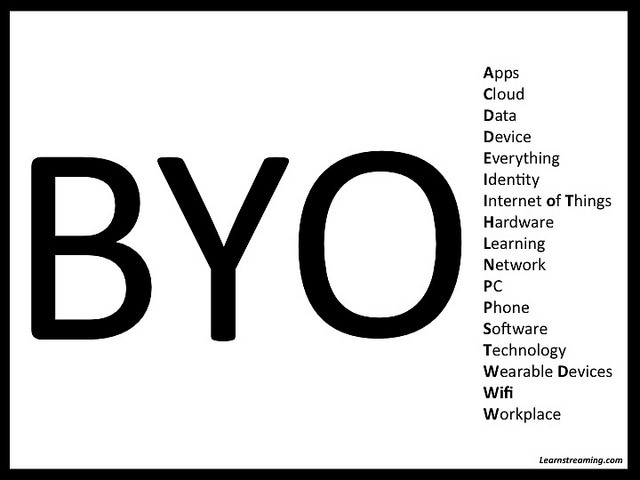The Year of Mobile Computing: BYOD Trends to Expect in 2015
Guest post by Jennifer Birch
As people become more mobile reliant, the trend toward “bring your own device” (BYOD) becomes more common in today’s highly technologically dependent world. In fact, Gartner research revealed that 50 percent of companies will require their staff to use their own devices for work purposes in 2017. “The benefits of BYOD include creating new mobile workforce opportunities, increasing employee satisfaction, and reducing or avoiding costs,” according to Gartner vice president David Willis.
With the continuous demand for mobile computing in the business sector, it’s important to know what’s next in this sector. In this post, let’s introduce you to the top BYOD trends to watch out for this year.
More Mobile Security Apps
Security will remain as the main concern that slows the widespread growth of mobile computing in the office. However, as the famous saying goes, “there’s always an app for that.” A mobile security application is one of the most important apps that each gadget owner should acquire. For companies, one of the major concerns is the safety of their servers and crucial business information that can be hacked easily, given that these devices can easily be stolen and accessed by anyone remotely. It’s best to follow some of the common tips for mobile data security such as installing security apps, deleting cache and history, and turning on the device’s access pin code system. [Editor’s note: Mobile Device Management systems such as Citrix XenMobile can offer organizations ways to enforce security policies, even on employee-owned devices.]
Rise of Wearables
Some of the much-awaited devices this year are in the form of wearables, particularly smart headsets such as Google Glass. Through its potential to provide augmented and virtual reality technologies, various industries are given the opportunity to work remotely, maximize innovative solutions, and acquire real-time data right at their eyes. “It [smartglasses] could provide access to repair manuals and larger schematics, helping engineers, technicians and architects to make more informed, quicker decisions,” Steve Pluta wrote in the news section of O2. As smartwatches have become powerful as well (with their ability to be standalone devices), it is not impossible that these gadgets will also be included in the next wave of BYOD technologies.
High mTech Demands by Employees
As stated previously, there will be an increase in the number of companies requiring their employees to use their own smartphones and tablets to work remotely. However, demand coming from their staff will also be apparent, such as the following:
- The option to choose their own type of gadget.
- Demand for a 4G connection.
- Free access to work-related apps.
- Pre-installed Cloud apps (such as Dropbox or iCloud), access to company Web site, and more.
Tracking Tools to Monitor Mobile Usage
Since there will be widespread adoption of mobile devices in the office, businesses will then have to control and monitor their usage. With the help of analytics tools, companies will have concrete insight into the content that their employees are accessing. Some may regard this action as a way to control their employees, limiting the activities they can partake of using their gadgets. However, experts say that applying a mobile monitoring tool must be discussed openly with colleagues to avoid any hurdle in the process.
BYOD has completely revolutionized the business sector, with its various advantages in terms of faster computing processes. Although security will remain to be of the utmost concern to most companies in making the shift to mobile processing, it will continue to grow as more devices are being produced that are focused on making work more efficient and cost-effective. What trend are you expecting to come up in BYOD this year?
@writtenbyjenni


Leave a Reply
Want to join the discussion?Feel free to contribute!